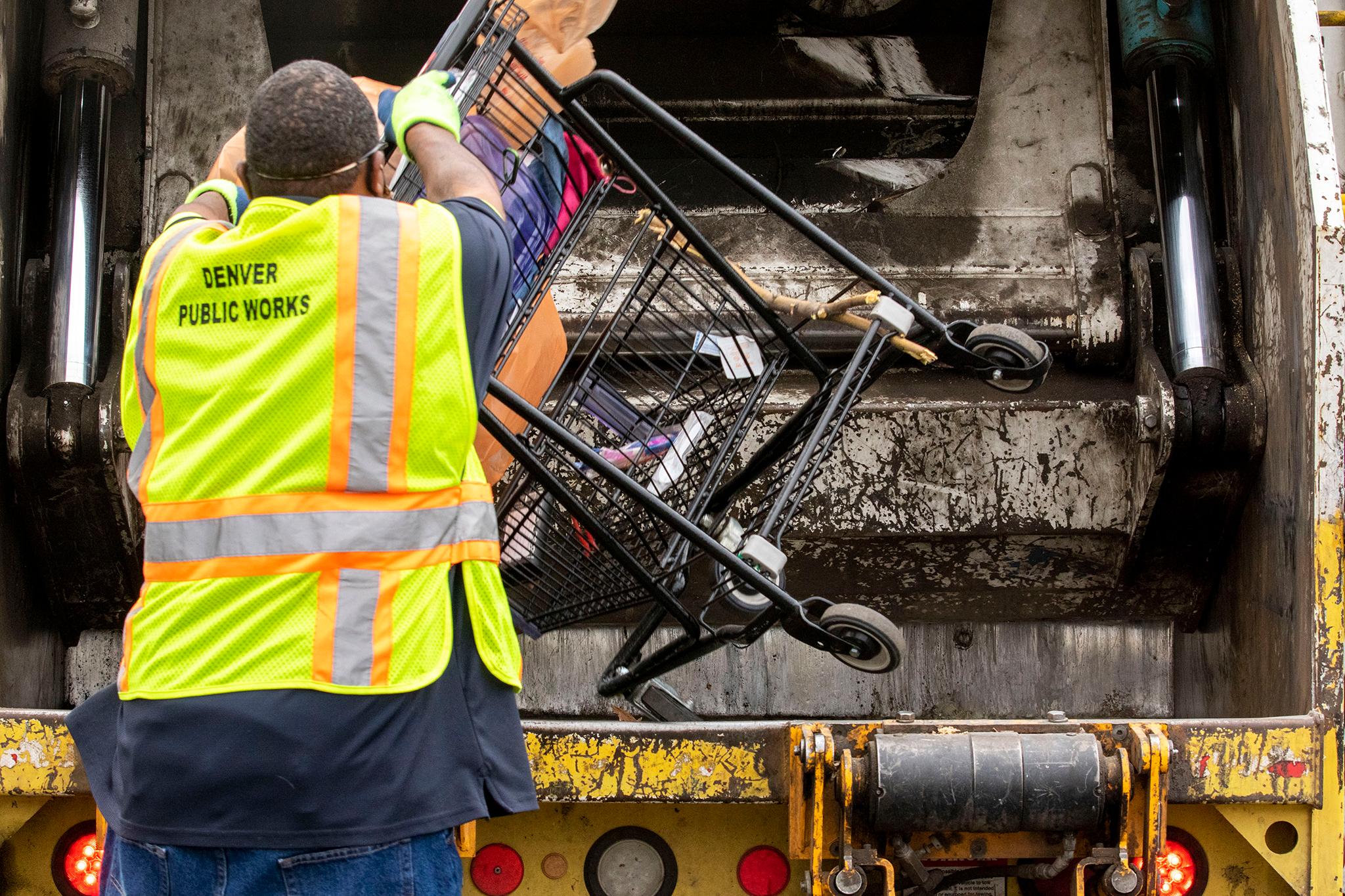Denver Department of Transportation and Infrastructure crews are returning a week after collecting almost five tons of trash in a swath of Five Points. This time they are requiring -- not just requesting -- that people experiencing homelessness move to allow for cleaning.
Advocates for people experiencing homelessness protested the original cleanup last Thursday and Friday, arguing it could lead to vulnerable people moving away from services they needed amid the coronavirus outbreak. Makeshift campsites are scattered in the targeted area between 20th to 23rd streets and from Welton to Curtis streets. It's a part of town where people in need can find, along with day shelters and other services, portable toilets and hand-washing stations.
Nancy Kuhn, a city spokeswoman, had said the initial cleanup was done for health and safety reasons.
In an email Tuesday Kuhn said that while last week's effort "resulted in the removal of a significant amount of trash as well as several hazardous materials, the department's approach to asking people to move voluntarily -- without requiring them to do so -- did not result in the compliance levels needed to thoroughly clean and disinfect the area."
This time, the city will be "requiring people to temporarily move themselves and any belongings out of the area being cleaned, in order to fully clean the area by removing existing trash and hazardous materials that have accumulated since last week and disinfecting the sidewalks," Kuhn said.
Kuhn said the department was posting notices Tuesday of the block-by-block cleanup that was to start Thursday and could continue into early next week.
"We had an outreach team starting to talk to people in the encampment areas last night, letting them know that we weren't able to clean to the levels we needed to last week and that we are coming back with equipment that will allow us to more thoroughly clean and sanitize the sidewalk areas and improve conditions," Kuhn said. "Historically, we have been able to get people to move without ticketing or arrest.
"As always, we will have outreach teams on site to connect people who are present to necessary resources and services," Kuhn added. "The city also continues to offer free storage of items, for up to 60 days, should any individual who is present during a cleanup want to store personal property that does not pose a public health or safety risk. The city will also store unattended personal property that does not pose a public health or safety risk, free of charge for up to 60 days."
Kuhn said about 9,500 pounds of trash was collected in the area over the two days last week. Among the items cleared were 52 needles and 206 pounds of propane in various sized cylinders, she said.
David Scott, interviewed next to his tent during the cleanup last week, said if the city cleaned weekly, the area would not "look like a slum."
Scott said he tried to keep his patch of pavement tidy.
"We can help each other," he said.
Kuhn had said last week's cleanup fell under the rules established last year when the city settled a class action lawsuit filed by people experiencing homelessness.
The plaintiffs in the federal suit had challenged the way city employees handled their belongings during some street cleanups in 2016. The settlement's provisions included requiring the city to give written notice seven days before embarking on a "large-scale" clearance of belongings.
Seven days' notice was given before last week's cleanup. The shorter notice period this week appears to fall under a provision in the settlement requiring two days' notice before removal of unattended items from public places. The agreement stipulated that it did not constrain the city's ability to act quickly in cases when public health and safety were threatened.
The settlement also called on the city to enact policies to ensure the return of property confiscated during clearances.













